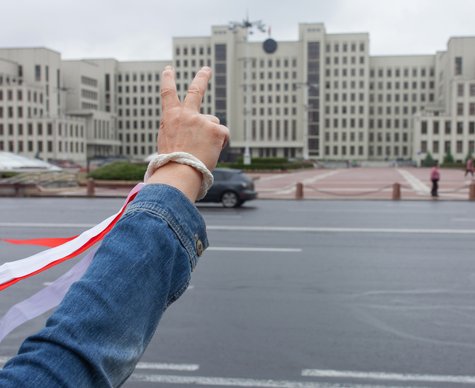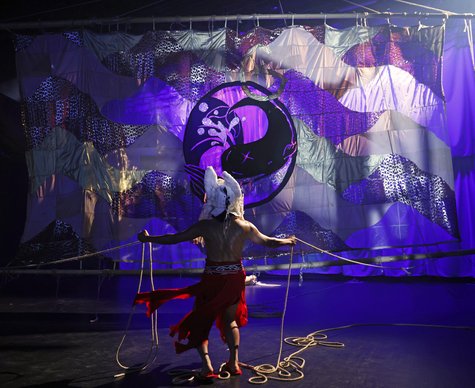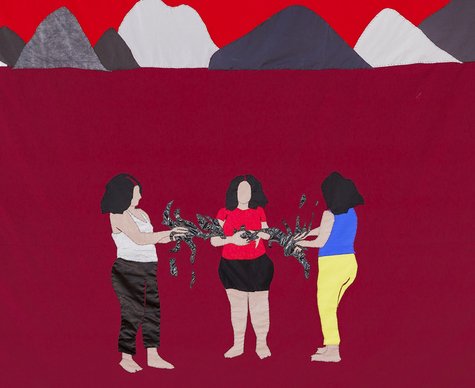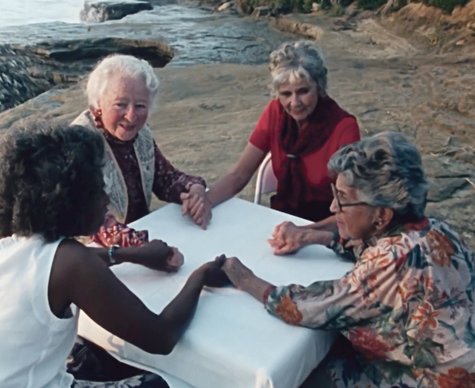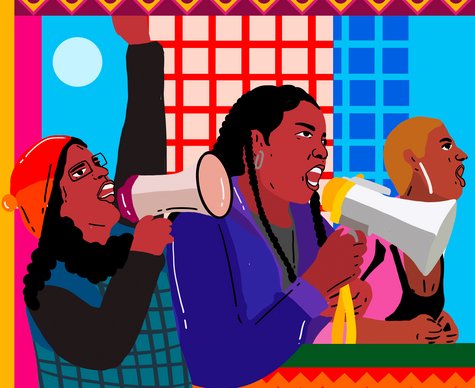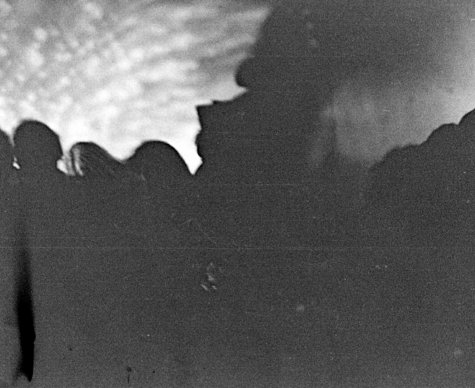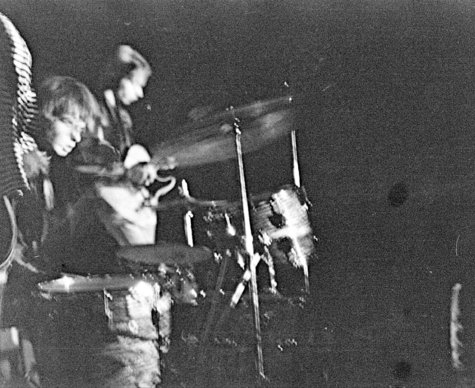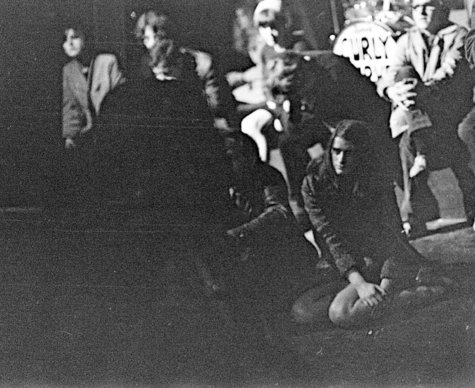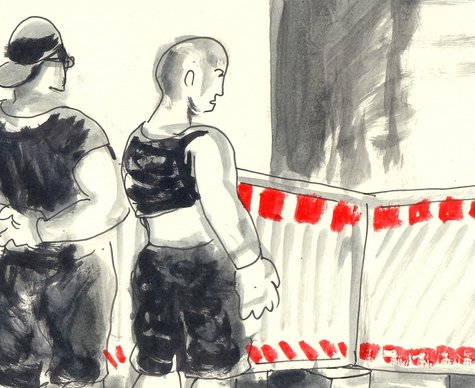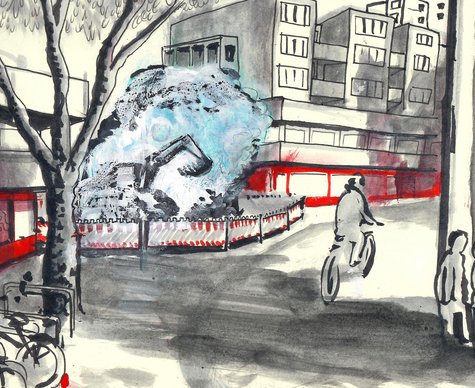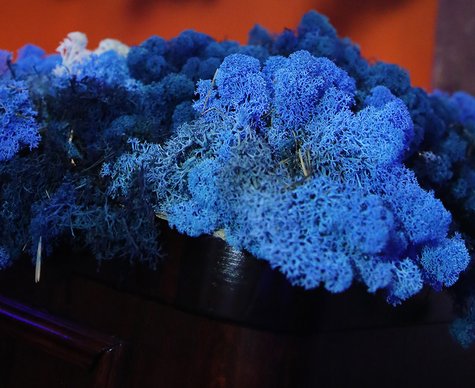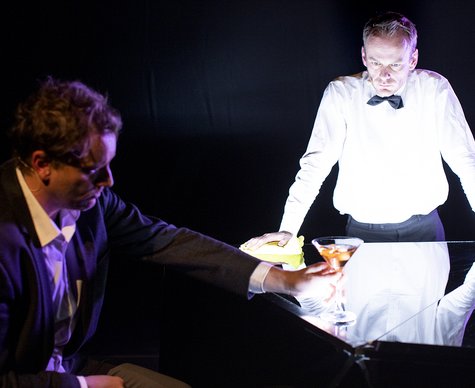There are no fixed rows of chairs during this performance. The audience is invited to sit or stand at a table built for the performance and to move around the space repeatedly. Alternative seating will be provided for those unable to stand or sit on the floor.
The event will include passages of high volume. Hearing protection is available free of charge at the entrance. This is a dinner performance in which the audience interacts with each other.
3hd 2023: Let Them Eat Cake
Eat the Rich
With Arvida Byström, Caique Tizzi, Cassie Augusta Jørgensen, Élie Autin, Hengameh Yaghoobifarah, Krista Papista, Ludwig Wandinger, Martins Kohout, Odete
- Dialogue
- Performance

An epic two-night cabaret banquet, “Eat the Rich” at HAU Hebbel am Ufer approaches various modes of delightful resistance through music and performance, conversation and food. It’s named after the popular political slogan often used in opposition to wealth inequality, and commonly attributed to 18th century philosopher Jean-Jacques Rousseau, then popularized during the French Revolution. A similar sentiment of dissatisfaction with the current order drives both evenings’ set menu, hosted by 3hd and responding to the violence of normativity, colonization, social upheaval, and the erasure of queer histories.
The eight “course” dinner theater transforms the HAU2 performance space into a sophisticated scene of artists navigating a chaotic landscape marked by death and decay, beauty and power. It’s directed towards giving voice to that which has been silenced through food—somewhat like Rousseau’s otherwise gruesome metaphor warning, “When the people shall have nothing more to eat, they will eat the rich.” There’ll be no munching on the moneyed class here, except in the event’s narratives of dissent, autonomy, and cultural expression facilitated through the social role of communal feasting.
Artist and cook Caique Tizzi will provide the apéritifs, engaging the senses beyond just the eyes and ears – through taste, smell, and touch – as a means of connecting with the “Eat the Rich” microworld. The interdisciplinary and intersensory banquet follows a loosely-connected process spanning diverse artistic domains, exploring the possibilities of experimental music theater and musical installations within a platform like 3hd organizers, Creamcake. Arvida Byström explores the future of food and sex in conversation with AI love doll “Harmony,” and Élie Autin dismantles the negative depictions of vengeful Roman goddesses, as well as bacchanalian priestesses who worship the god of wine and revelry. Odete investigates the intersections of magic, history, and transexuality, and Cassie Augusta Jørgensen deconstructs the Western fetish for ballet and sadistic notions of beauty with “Debris in a Skin-Tight Corset.” Hengameh Yaghoobifarah gives a toast and Krista Papista enacts the fight against nationalism, through the reinvention of folklore – constructing a queer phenomenology through destruction. Martins Kohout’s very personal ceremony mourning both the loss of a loved one and what’s left behind in any transition, echoes a collective grief in the face of rising political, economic, and climate uncertainty and a longing for change for the better.
Dates
Further Information
Credits
Curation and organization: Creamcake. In collaboration with: HAU Hebbel am Ufer. Funded by: Berlin Senate Department for Culture and Social Cohesion.
Location
HAU2
Hallesches Ufer 34, 10963 BerlinThere are two marked parking spots in front of the building. Barrier-free restroom facilities are available. Four relaxed seats are available in the first row of HAU2. Tickets for wheelchair users and accompanying persons can also be booked via the ticketing system. If you need help, please contact our Ticketing & Service team at +49 (0)30 259004-27 or send us an email to
tickets@hebbel-am-ufer.de.
Latest information for arrival:
There is currently a construction site on Hallesches Ufer between Wilhelmstraße and Möckernbrücke underground station. There is a divided replacement route for pedestrians (right) and cyclists (left), which are separated by a yellow ground line. The carriageway is narrowed to one lane.
Travelling to HAU2 via U Hallesches Tor:
If you are coming from Hallesches Tor underground station, you will have to use an alternative footpath from Wilhelmstraße / Hallesches Ufer junction, which is separated from the carriageway by a construction fence – the actual footpath is currently closed. Please note: the alternative route is also used by cyclists. Pedestrians should keep to the right. We therefore currently recommend that visually impaired or blind visitors come to the HAU with an accompanying person.
Arrival HAU2 via U Möckernbrücke:
When you leave Möckernbrücke underground station, please stay on the footpath on the canal side until you reach Hallesches Ufer / Großbeerenstraße junction – the opposite side is currently closed due to construction work.





















